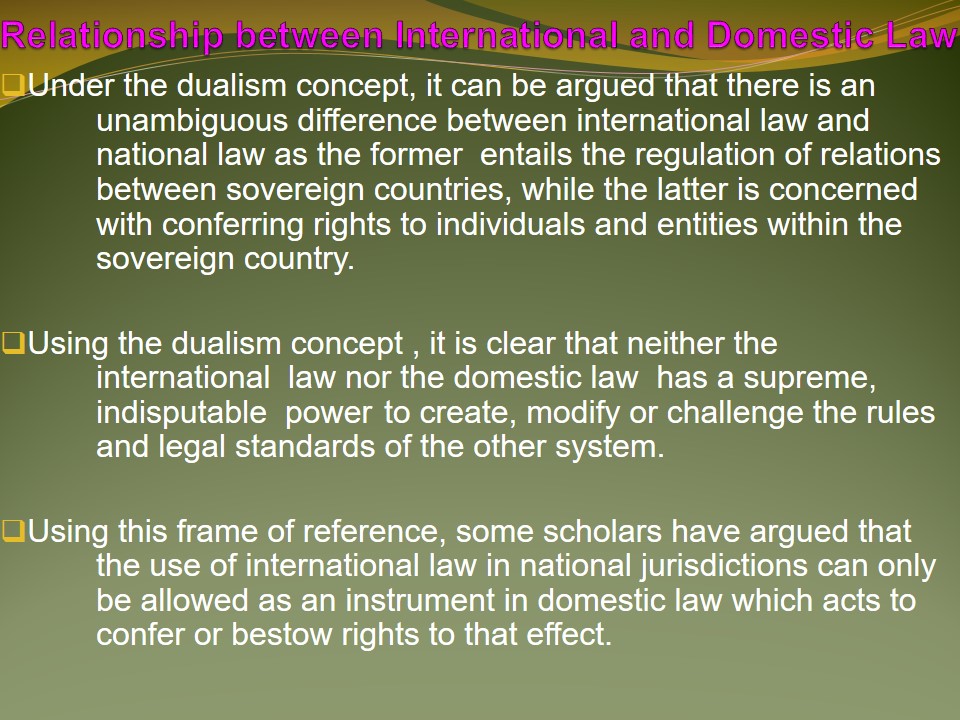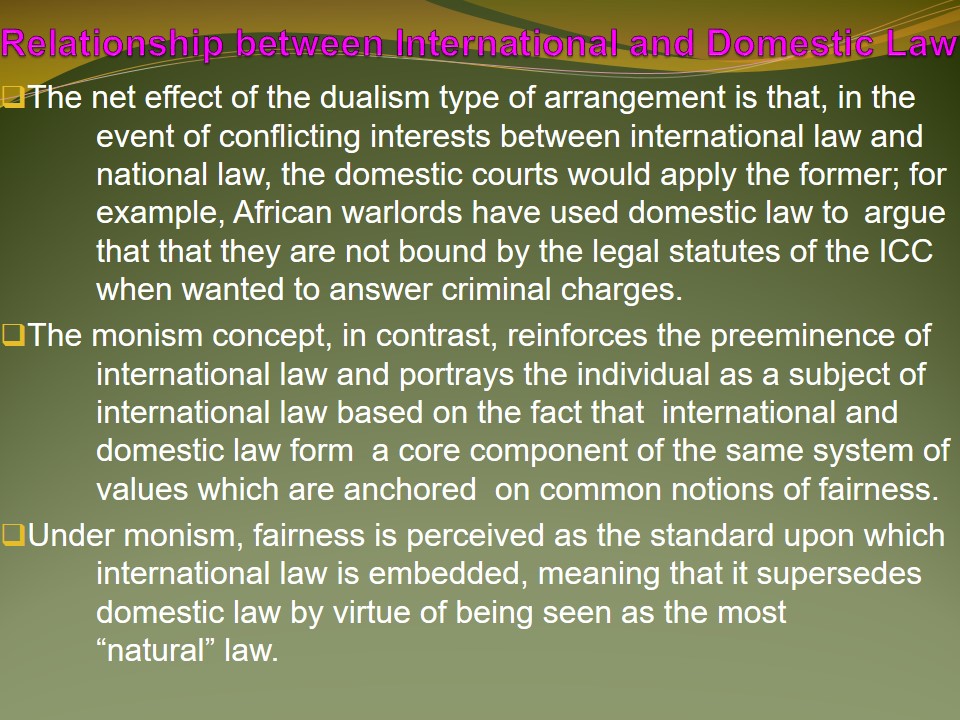Definition of International Law
Defined differentially by various scholars; however, the universal consensus is that international law comprises a set of rules, standards and principles of general application related to the conduct of States and of international entities in their global interactions with each other and with private players, minority groupings and transnational organizations.
For example, the International Criminal Court (ICC) uses a set of rules and standards established under the international criminal law to punish those who commit genocide, crimes against humanity and other serious crimes irrespective of national rules of their own countries.
The principle sources of international law documented in the literature include:
- International conventions or treaties that establish rules and regulations explicitly recognized by contesting countries;
- Customary international law, as evidence or verification of a common practice accepted as law;
- The general principles of law accepted by enlightened states;
- Judicial decisions and teachings of the most highly competent publicists of various countries, as supplementary means for the determination of standards and rules of law.
There are three typologies of international law, namely:
- Public international law (E.g., customary public international law, globally accepted standards, and legal codes).
- Private international law (Governs private conflicts between individuals and international business organizations such as multinational corporations, rather than between states).
- Supranational law (In this type of international law, states surrender to the court their right to make certain judicial decisions ; for example, the European Court of Justice rules over all of the national courts within the member states of the European Union (EU) using supranational law).
- Treaties – bilateral and multilateral treaties that become binding upon countries that choose to ratify the treaty; for example, the Camp David Accords between Egypt and Israel;
- Customary international law – places binding obligations on countries according to established patterns of behavior or conduct; for example, the obligation of states to respect human rights under the international humanitarian law and international conflict;
- General principles of law identified by enlightened countries – these comprise general themes familiar to the various legal systems throughout the world; for example, the concepts of estoppel (issue preclusion) and res judicata (claim preclusion); and
- Judicial decisions and teachings of the most highly qualified publicists – for example, incidences where the International Court of Justice (ICJ) or the ICC refer to national judicial decisions of various countries and scholarly material from the international community in the event that the international law fails to provide an unambiguous and satisfactory response to an issue.
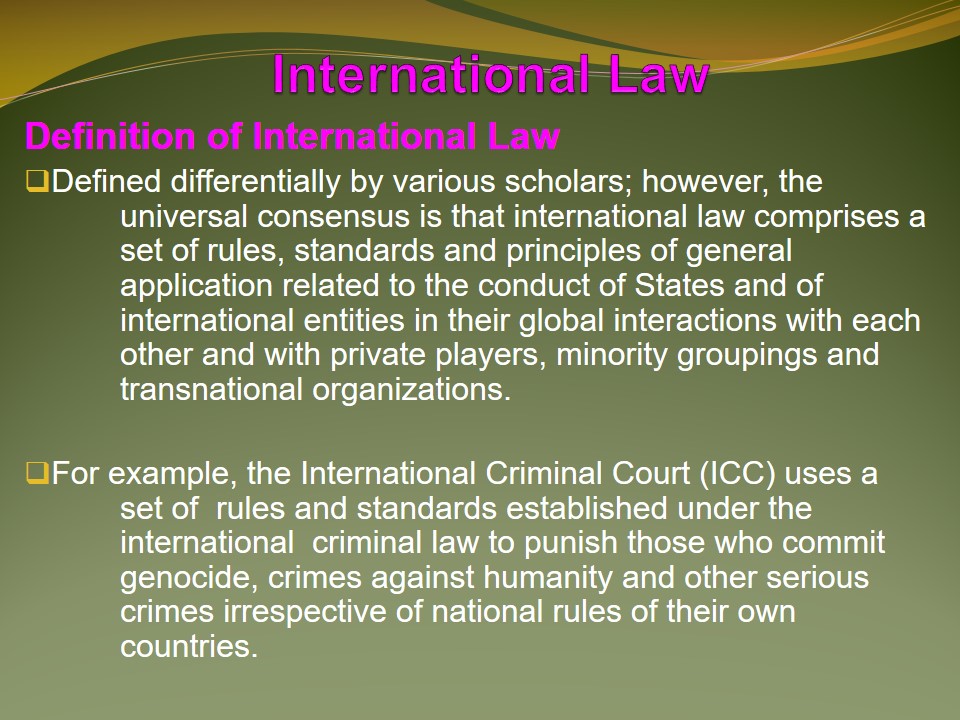
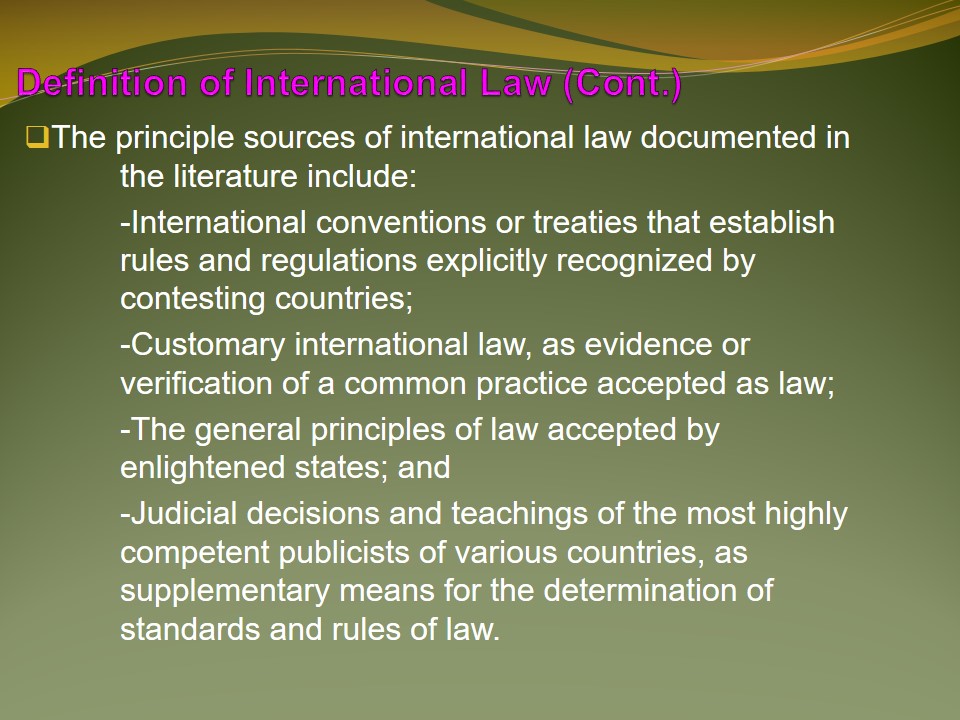
Uses of International Law
Provides an enabling structure for the practice of stable and organized relations between countries, private entities and transnational organizations that ratify the rules and principles.
For example, existing bilateral and multilateral treaties between nations and states ensure stable and organized trade and commerce relationships globally.
Provides an enabling framework for international commercial arbitration.
Reduces conflicts between states and acts as the guardian of welfare since the rules and standards provide order and assist in mitigating destructive conflict between states.
In the United States, some international legal provisions and standards are applied to determine cases where controlling federal statutory provisions are absent.
For example, in one of the cases, the United States Supreme Court used the customary international law to make a decision that an American crew jeopardized international wartime customs when it engaged in seizing an enemy ship during the prolonged Spanish-American war.
In the United States and other developed countries, international law has often being used to interpret domestic law.
For example, the Charming Betsy doctrine continues to be used in America to show that an act of the Congress ought never to be perceived as violating the law of nations (international law) if any other probable or potential construction remains.
One of the principles of International law is that individuals who intentionally harm others through genocide or crimes against humanity should have to pay compensation or make reparation; this principle has increased stable global relations and reduced conflict between states.
It is important to note some states mostly in the developed world do not allow international law to neither determine national cases nor interpret domestic law despite the fact that they have ratified most of the rules and standards that comprise international law.
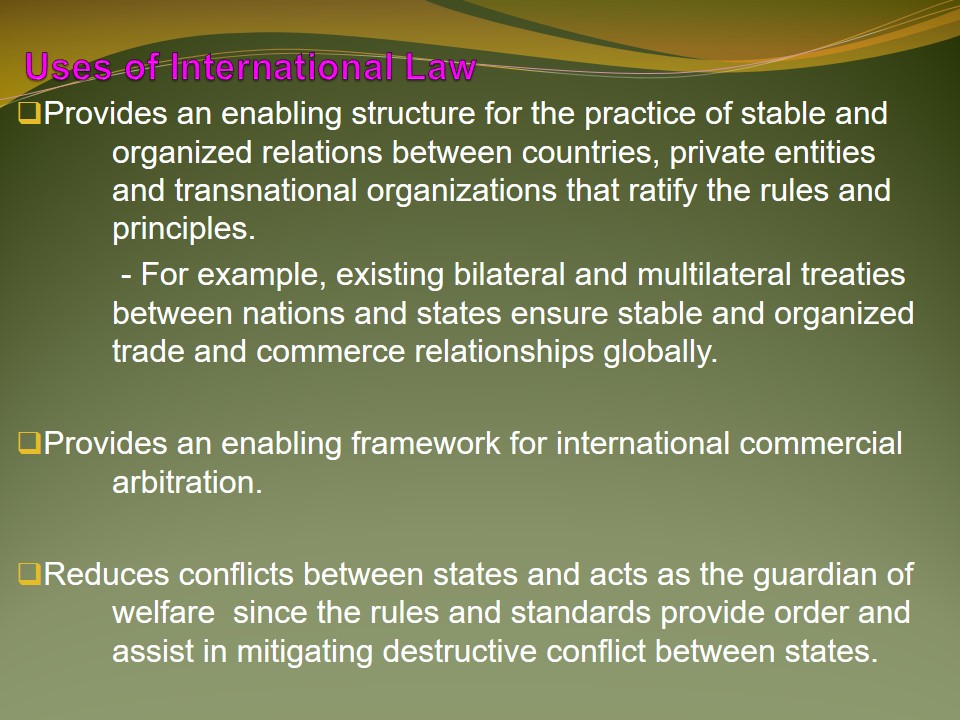
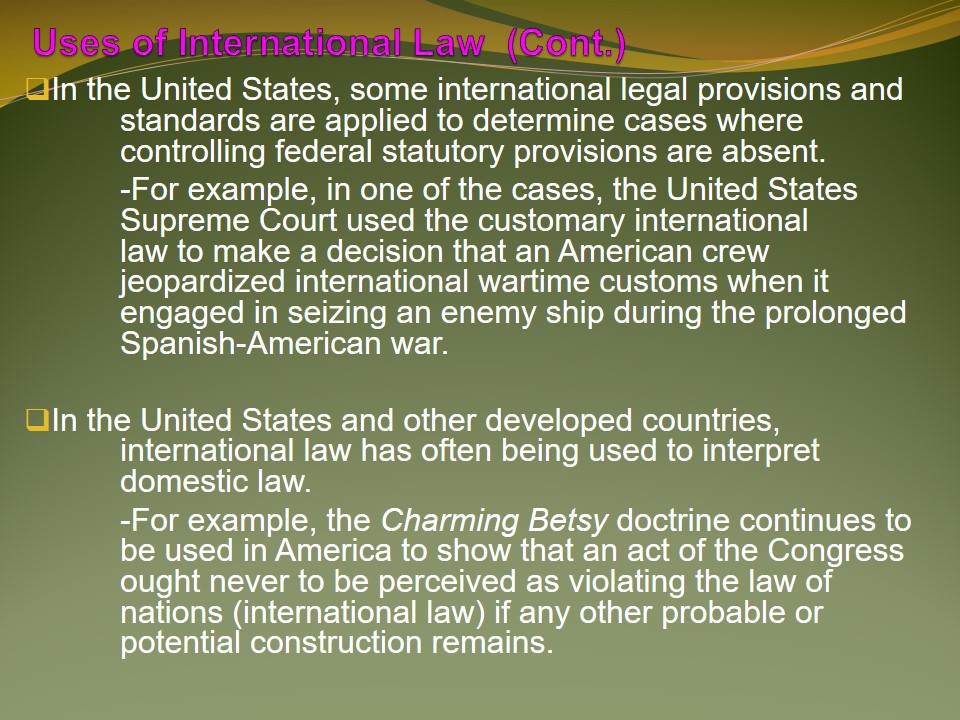
Relationship between International and Domestic Law
Under the dualism concept, it can be argued that there is an unambiguous difference between international law and national law as the former entails the regulation of relations between sovereign countries, while the latter is concerned with conferring rights to individuals and entities within the sovereign country.
Using the dualism concept , it is clear that neither the international law nor the domestic law has a supreme, indisputable power to create, modify or challenge the rules and legal standards of the other system.
Using this frame of reference, some scholars have argued that the use of international law in national jurisdictions can only be allowed as an instrument in domestic law which acts to confer or bestow rights to that effect.
The net effect of the dualism type of arrangement is that, in the event of conflicting interests between international law and national law, the domestic courts would apply the former; for example, African warlords have used domestic law to argue that that they are not bound by the legal statutes of the ICC when wanted to answer criminal charges.
The monism concept, in contrast, reinforces the preeminence of international law and portrays the individual as a subject of international law based on the fact that international and domestic law form a core component of the same system of values which are anchored on common notions of fairness.
Under monism, fairness is perceived as the standard upon which international law is embedded, meaning that it supersedes domestic law by virtue of being seen as the most “natural” law.
National law comes from the legislature (a body of people who have the capacity to make or enact laws) and customs (practices deemed as normal for persons or states), while international law comprises treaties and customs.
It is important to note that international law lacks a common executive, meaning that many states willingly violate the various legal aspects of international law because there is no power which can make a country or nation to accept a court decision; however, domestic law is easily enacted and followed since it comprises all the three arms of government – executive, judicial, and legislative.
